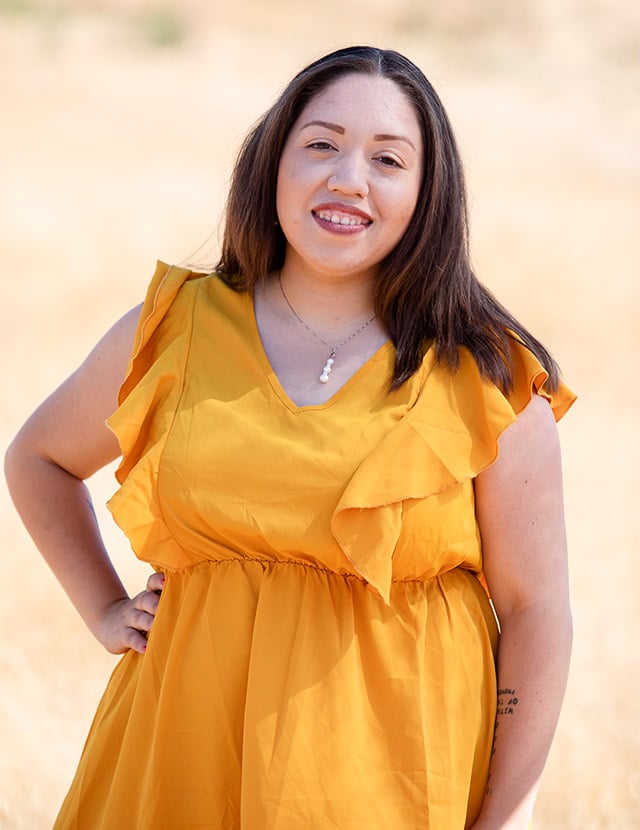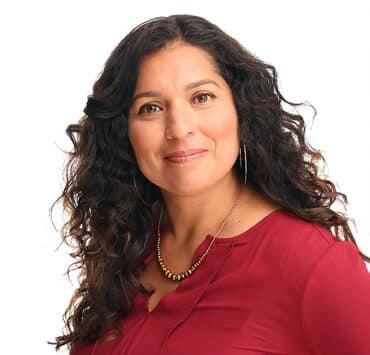|
Getting your Trinity Audio player ready...
|
In November 2023, Why Not You Academy (WNYA) received a $100,000 grant from the Limitless Learning Network. It was a significant milestone for the charter high school, which was cofounded by professional football player Russell Wilson and his wife, Ciara, alongside educator Scott Canfield. The grant allows CEO Abigail O’Neal to further grow key initiatives that align with the school’s core values of innovation, inclusivity, and personalization.
“Our mission is centered on dismantling barriers that disproportionately affect underserved students, particularly those impacted by racism and poverty,” O’Neal says. “We believe that every scholar deserves the chance to shape their future and positively impact their communities in the long term.”
O’Neal knows the educational challenges firsthand as a daughter of Nicaraguan immigrants and a first-generation college graduate. Each obstacle demanded resilience and determination, and she found the strength of community and the support of mentors to overcome each challenge. Her upbringing in South Central LA and within the Chicano community formed her commitment to social justice and equity in education, while attending a small magnet school and participating in Gil Cedillo’s Young Senator program opened doors for her leadership and career journey.
“Despite the hurdles I’ve faced, I stand proud of my journey and the strides I’ve made in the field of education,” O’Neal says. “Each challenge has strengthened my resolve and reaffirmed my commitment to making a difference in the lives of others.”
O’Neal spoke with Hispanic Executive about how WNYA addresses the biggest systemic issues holding back educational equity, the importance of representation and role models, and her vision for the future of the academy.
Can you describe the personalized learning plans and real-world experiences offered at Why Not You Academy, and how they prepare students for success in college and beyond?
We are committed to preparing our students, particularly those of color and from low-income families, for success in college and beyond through personalized learning plans and real-world experiences.

Our scholars develop personalized learning plans that start with their purpose statements. Each plan also outlines short-term goals focusing on the next six months and long-term goals centered on their post-high school aspirations. Our students continuously update these learning plans during one-on-one sessions with their advisors. Additionally, they have exhibitions two to three times a year, where they share their successes and reflect on their goals with their advisors, families, mentors, and peers.
We believe that students should have the opportunity to learn about and explore various career paths to help them make informed decisions about their futures. To achieve this, our strategy involves exposing students to as many careers as possible. They participate in informational interviews, shadow days, internships, and career panels with leaders in the community who are willing to share their experiences.
In your view, what are the biggest systemic issues holding back educational equity in the United States, and how can innovative models like Why Not You Academy help address those issues?
In my view, one of the biggest systemic issues holding back educational equity in the United States is that, generally speaking, we are teaching scholars in the same method, shape, and structure that we were one hundred years ago. In traditional schoolhouses, the teacher would stand at the front with a big blackboard, and students would sit in rows of desks or on benches. This outdated model does not meet the diverse needs and interests of today’s students.
At WNYA, we are pushing beyond our school building and classroom walls. We take our students out of the building to learn and bring community leaders into the school to share their career trajectories, passions, and experiences. Schools need to be innovative and ask students about their interests and goals, meeting them where they are. By exposing them to possibilities they may not know exist and closing the gap in education and access to opportunities, we help them have choices in the future when they become adults and one day have their own families.
“Community engagement, holistic support, academic rigor, and resilience are nonnegotiables that will guide our path forward.”
Abigail O’Neal
What are the most significant barriers faced by students of color and those from low-income backgrounds in accessing quality education, and how can these be addressed?
Our students of color face significant barriers in accessing quality education due to daily encounters with racism and systemic injustices. The communities we serve are impoverished, lacking essentials like housing and adequate schools. Many of our students come from immigrant families or families where parents work multiple jobs to provide basic necessities. As a result, the majority of our scholars will be the first in their families to attend college, facing additional challenges such as imposter syndrome.
These barriers can be addressed by providing scholars with a safe space where they can learn and grow, make mistakes and fail, but also get back up and succeed. Building partnerships with the community allows us to work together to serve our scholars and their families, creating a supportive network that fosters success.
We also need to bring awareness to others so they understand that systems of oppression have strategically kept students of color and people of the global majority down. We need everyone’s support to dismantle racism and these systems of oppression.
Representation and role models are crucial for underrepresented communities. How do you hope to inspire and empower the next generation of Latina leaders in education and other fields?
I aim to inspire and empower the next generation of Latina leaders in education and beyond by highlighting the strength, resilience, and diverse talents of Latina women. Role models like Dolores Huerta and Supreme Court Justice Sonia Sotomayor demonstrate the incredible potential of Latina women. It’s important for people of all backgrounds to see Latina women as capable of both leading and nurturing their communities while pursuing big dreams.
I am proud to be a wife, mother, daughter, and leader. Latina women have the ability to care for their families and be community leaders simultaneously. This dual role is not just for men; it has deep roots in our indigenous culture, where maternal leadership was central before colonization imposed male dominance. By embodying this belief and living it daily, I show young Latinas that they can excel in various roles. Our experiences make us powerful and enrich our ability to innovate and lead.
“We need everyone’s support to dismantle racism and these systems of oppression.”
Abigail O’Neal
Looking ahead, what is your vision for the future of Why Not You Academy, and how do you see the school evolving to meet the changing needs of students and the community?
My vision for the future of Why Not You Academy is to continue evolving as a beacon of innovative, inclusive, and community-centered education. We will expand our focus on personalized learning plans, ensuring they are dynamic and adapt to each student’s evolving interests and goals. We aim to integrate more technology into our curriculum, leveraging digital tools to enhance learning experiences and ensure all students are tech-savvy and prepared for the future.
We also plan to strengthen our ties with the community by increasing partnerships with local businesses, organizations, and leaders. Furthermore, we will enhance our commitment to social-emotional learning and mental health support. Recognizing the holistic needs of our students is crucial for their overall development.
Community engagement, holistic support, academic rigor, and resilience are nonnegotiables that will guide our path forward.
This interview has been edited for length and clarity.

